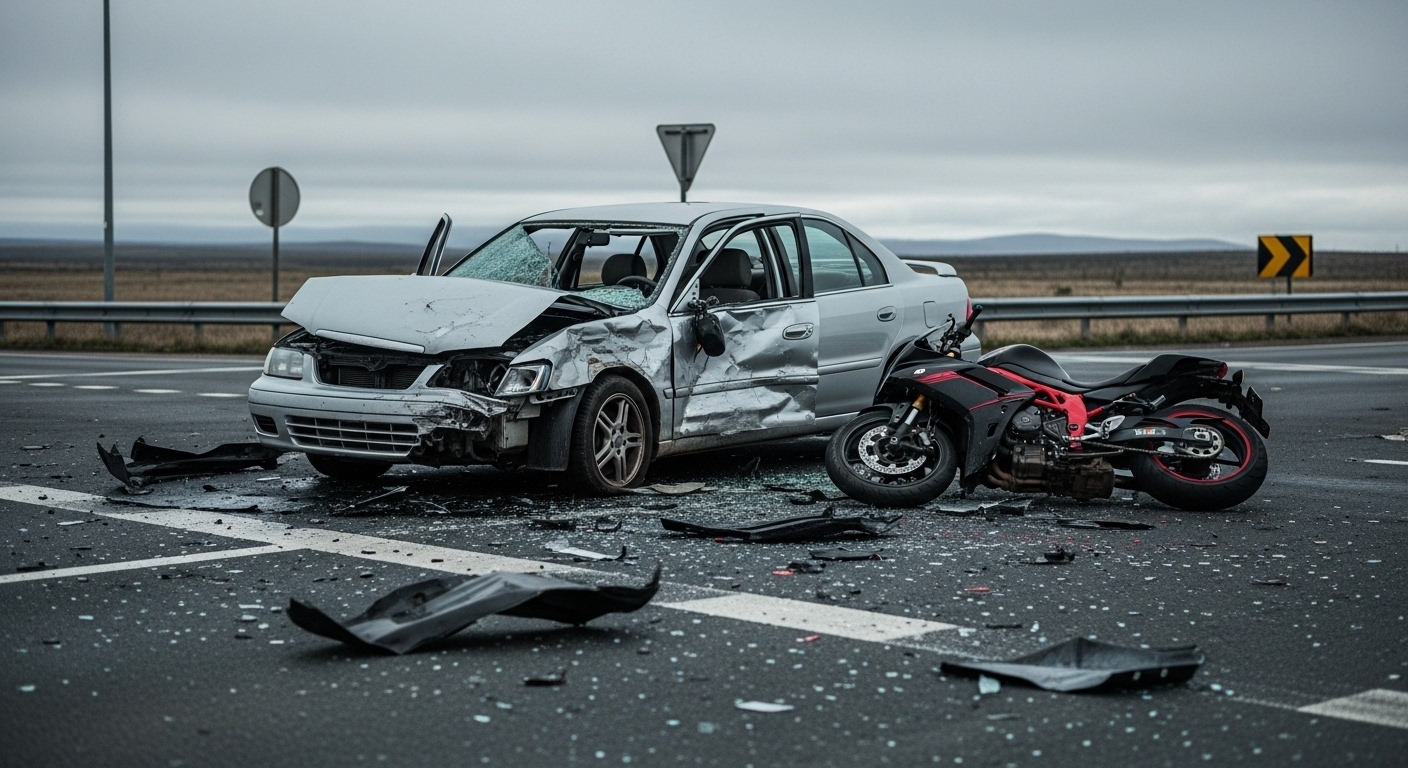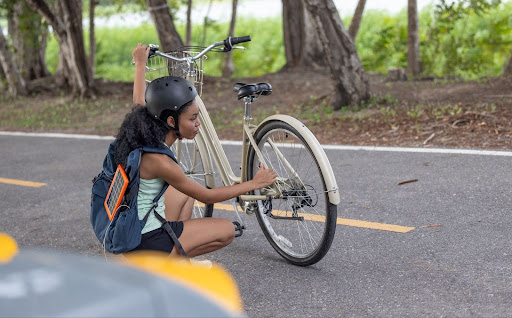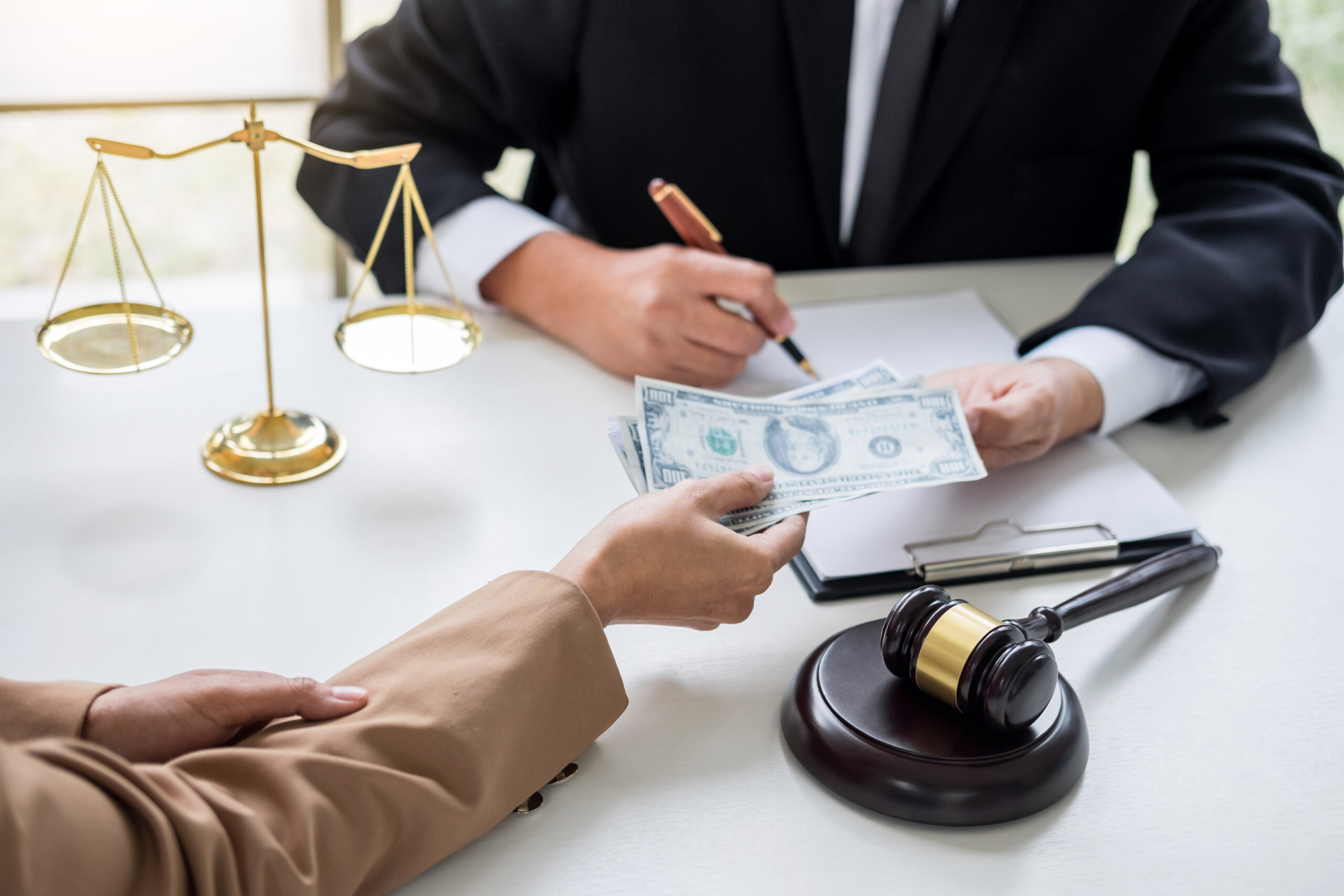Motorcycles account for only about 3% of vehicles on U.S. roads, but riders are responsible for 14% of all traffic fatalities. In 2023, over 6,335 motorcyclists lost their lives, and that number is growing. These aren’t just numbers. Behind each one is a person, a family, and a story of sudden loss or lifelong injury.
If you’ve been injured in a motorcycle or car accident, you’re probably overwhelmed. You might be facing medical bills, insurance calls, or time off work.
For local help, you can speak with a motorcycle crash attorney in Fargo to understand your options and the value of your claim.
The truth is, the stakes vary depending on the type of vehicle involved. A fender-bender in a car can be minor. On a motorcycle, it can be fatal.
This article breaks down how motorcycle accident rates compare to car accidents. You’ll learn what makes motorcycles riskier, what causes most crashes, who’s usually at fault, and what you can do if you’ve been hurt. More importantly, you’ll find out how Lowe Law Group supports injured victims in getting justice and fair compensation.
Lowe Law Group handles these cases every day, and we’re ready to help you.
Are Motorcycles More Dangerous Than Cars?
Yes, motorcycles are more dangerous than cars. The risk of death or serious injury is much higher for riders than for drivers or passengers in vehicles.
Motorcyclists are about 29 times more likely to die in a crash per mile traveled than people in passenger vehicles. They are also 4 times more likely to be injured.
Motorcycles typically do not have airbags, seatbelts, or enclosed protection. Riders are exposed to direct contact with other vehicles, the road, and nearby obstacles. Even low-speed crashes can cause broken bones, spinal injuries, or head trauma.
Visibility is another issue. Motorcycles are small and often overlooked by drivers in traffic or blind spots. In many crashes, the driver says they did not see the motorcycle.
Motorcycles also require more skill to operate. Controlling balance, braking, and cornering takes more experience than driving a car. This creates a higher risk, especially in busy or high-speed areas.
Lowe Law Group helps injured riders every day. We understand the severity of these crashes and work diligently to recover damages for medical bills, lost income, and long-term care.
Motorcycle Fatalities Per Year Compared to Car Accidents
Motorcycle crashes are not as common as car crashes in raw numbers. However, they are far more deadly when considering risk per mile traveled.
Motorcycles account for a small portion of road traffic, but their fatality rate is significantly higher. In fact, motorcyclists experience a fatality rate of 26.16 deaths per 100 million vehicle miles traveled. For passenger car occupants, the rate is only 1.20 per 100 million miles.
This shows that riding a motorcycle carries a much higher risk of fatality per mile than driving a car. The size of the vehicle, its stability, and the level of physical protection all contribute to this difference.
Lowe Law Group uses this data to fight for fair settlements. When a motorcyclist is killed or seriously injured, insurance companies often try to shift the blame. We push back with facts and expert analysis.
Are There More Motorcycle Accidents Than Car Accidents?
There are more car accidents than motorcycle accidents overall. That makes sense because there are far more cars on the road. However, when you compare the rates per mile traveled, motorcycle crashes are far more common.
The injury rate for motorcyclists is 31.39 per 100 million vehicle miles traveled. For passenger cars, the rate is significantly lower due to stronger vehicle structures, advanced safety features, and adequate crash protection.
This means that although more car accidents occur overall, motorcyclists face a higher personal risk every time they ride on the road.
Lowe Law Group helps riders understand their legal options after a crash. Even if you are unsure who is at fault, we will help you sort through the details.
Who Causes More Accidents: Motorcycles or Cars?
Many people assume motorcyclists cause more accidents, but studies say otherwise. In two-vehicle crashes involving a motorcycle and a car, the driver of the vehicle is at fault more than half the time.
One of the most common types of crashes is a left-turn collision. A car turns left in front of a motorcycle that is going straight. The car driver often says they did not see the rider.
Other common mistakes by car drivers include:
- Unsafe lane changes
- Opening doors into traffic
- Failing to yield at intersections
- Distracted driving, like texting
Lowe Law Group gathers evidence, including traffic video, eyewitness accounts, and phone records, to prove who caused the crash. Our job is to protect your rights and help you get compensation for what you have lost.
Common Causes of Motorcycle Crashes
Motorcycle crashes often happen fast. In most cases, it is not just one factor that leads to a crash. It is usually a combination of poor visibility, road conditions, driver error, or risky behavior.
Here are the most common causes:
- Cars turning left in front of motorcycles
- Drivers changing lanes without checking blind spots
- Sudden stops or rear-end collisions
- Road hazards like potholes or loose gravel
- Speeding or aggressive riding
- Drunk or distracted driving
Left-turn accidents are hazardous. They often occur at intersections when a car fails to see the motorcycle approaching straight ahead.
Weather can also play a role. Rain, snow, or even early morning dew can make roads slick. Since motorcycles only have two wheels, they are more sensitive to changes in road traction than cars.
Motorcycle Accident Rates: What Makes Motorcycle Injuries Worse?
Motorcycle injuries are usually more serious than car crash injuries. The difference is the level of protection. In a car, you have seat belts, airbags, and a metal frame to absorb impact. On a motorcycle, your body takes the hit.
Even at low speeds, a motorcycle crash can result in:
- Broken bones
- Concussions and brain injuries
- Spinal cord damage
- Road rash and skin loss
- Internal organ damage
One major problem is ejection. In many crashes, the rider is thrown from the bike. They may land on the pavement, get hit by another car, or crash into a stationary object.
Helmets save lives. The CDC reports that helmet use reduces the risk of head injury by nearly 70%, and the risk of death by 37% or more.
Even so, protective gear has limits. That is why motorcycle accidents are often more life-altering than other types of crashes.
At Lowe Law Group, we have a full-time medical doctor on staff who, along with our medical team, understands the long-term costs of your injury. We use this information to fight for full compensation.
What To Do After A Motorcycle or Car Accident
If you are injured in a crash, what you do next can affect your health, your recovery, and your ability to claim compensation.
Here’s what we recommend:
- Get medical help. Even if you feel okay, some injuries take time to appear.
- Call the police. Get an official accident report.
- Take pictures. Show vehicle damage, injuries, skid marks, and road signs.
- Collect witness names and contact info.
- Do not speak with insurance adjusters immediately. They may try to settle fast for less than you deserve.
- Call Lowe Law Group. We will explain your rights and help you evaluate your legal options at no cost.
Many people feel pressure to move quickly after a crash. However, quick decisions can come back to haunt you later. Medical bills, lost wages, and pain and suffering all deserve fair compensation.
We make the process easier. You focus on healing. We will handle the paperwork, phone calls, and negotiations.
[“Talk With a Motorcycle Accident Lawyer Now” CTA button]
Why Lowe Law Group Can Help You
Lowe Law Group has handled thousands of injury claims. We focus on helping people after serious crashes, including those involving motorcycles.
We understand what you are going through. Our team listens to your story, explains your legal options, and builds a case that reflects the true impact of your injuries.
Here is what makes us different:
- We handle all communication with insurance companies
- We work with accident investigators and medical experts
- We keep you informed every step of the way
- We don’t charge you anything unless we win your case
We also understand that motorcycle accident victims often face bias. Some people assume riders take more risks. We challenge that unfair narrative and present the facts.
Our primary goal is to protect your health, finances, and future.
Don’t Face the Aftermath Alone. We Can Help!
Motorcycle accident rates are higher than car accident rates, not just in frequency but in severity. Riders face more serious injuries, longer recoveries, and more complex legal challenges.
Many crashes are preventable. Drivers must pay better attention. Riders must use the best safety gear and training available. When a collision does happen, the legal side can feel overwhelming.
Lowe Law Group is here for you. We will answer your questions, fight for your compensation, and support your recovery from the very beginning.
You don’t need to face this alone. Our attorneys serve clients across multiple states and handle a wide range of injury claims. We are focused on your health and your future.








